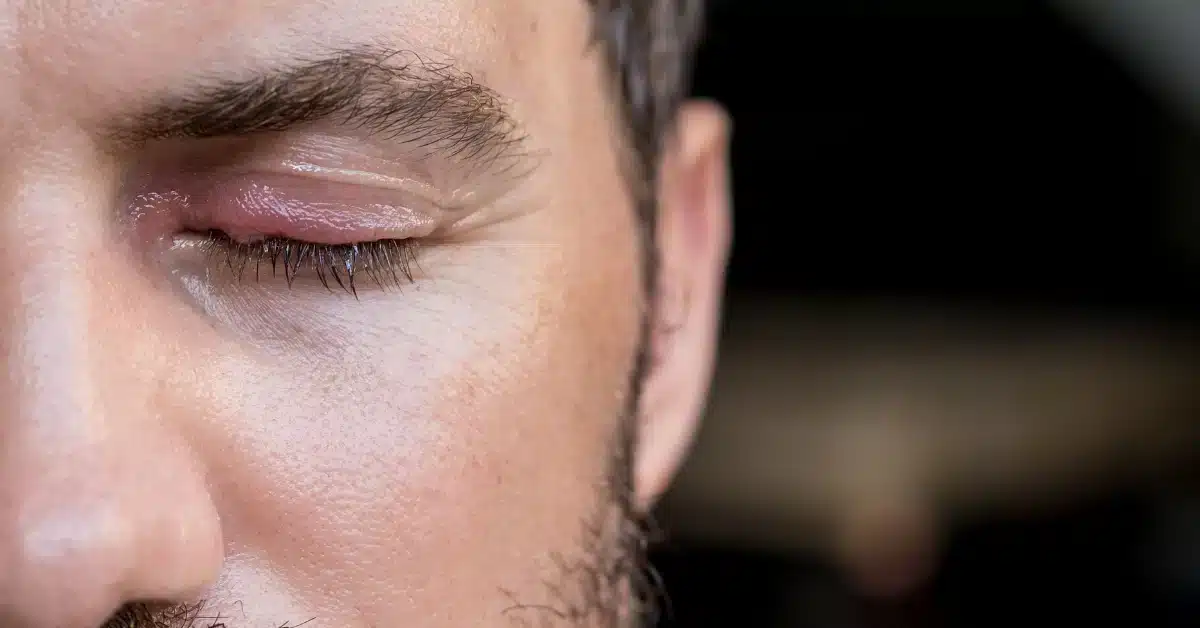Medications for Swollen Eye: A Guide to Rely
The eye is a very complex organ of the human body.
There are different glands in the eye that can cause inflammation.
These glands are tear, sebaceous (oil or meibomian), and sweat glands.
These tissues can react to different diseases and drug interactions. It can cause inflammation, which leads to swollen eyes.
Generally, the swollen eye goes away within a day or so. You should consult your doctor if it doesn’t get better in 24 to 48 hours.
A swollen eye is generally not a condition or disease. But a symptom due to allergy, infection, injury, or inflammation.
The condition of the swollen eye is not serious, but you should clean and take care of your eyes if they are swollen.
The doctor can prescribe you some Antihistamines in case of severe inflammation due to allergies.
How to treat Swollen Eye
There are different treatments available for treating a swollen eye.
Your doctor can prescribe different medications depending on the cause of the swelling.
By doing so, you can reduce the inflammation of your eye.
Some medications for swollen eyes are Artificial Tears, Antibiotics, and Anti-inflammatories.
Medications for Swollen Eye
Your doctor can prescribe you the following medicines after examining the condition of your eyes

Antibiotics
Your doctor may prescribe you Antibiotic ointments for Swollen Eyes.
These consist of Azithromycin, Bimatoprost Ophthalmic Solution, and Polysporin for your swollen eye.
Some Antibiotic eyedrops consist of a combination of Polymyxin B and Trimethoprim.
Antibiotics help in resolving bacterial infections and reduce irritation.
In severe cases, oral antibiotics like Doxycycline and Azithromycin may be recommended.
Some antibiotics which can help in reducing swelling and pain are
| Medicine Name | Approx. cost |
| Actavis Bimatoprost 300 mcg | $9.83 |
| Azithral Eye Drops 0.1% (3ml) | $15.50 |
Anti-inflammatories
Ophthalmic anti-inflammatories are divided into the following categories:
- Corticosteroids
- Non-Steroidal Anti-inflammatory Drugs (NSAIDs)
Steroids help in reducing eye inflammation.
They decrease the number and function of inflammatory cells.
It also helps inhibit chemical mediators of inflammation.
Doctors may recommend Nevanac Eye Drop 5ml for quick relief from swelling and pain.
Immunomodulators
Immunomodulatory medicines like Cyclosporine Ophthalmic help in the case of Posterior Blepharitis.
These medicines help in blocking the body’s natural immune system.
It also reduces inflammation.
Artificial Tears
This medication is used to treat irritation in the eyes and dry eyes.
Some artificial tear medicines, like Eyemist E/D 10ml, contain Glycerine with polysorbates and other ingredients.
It is also available in the form of drops as well as an ointment.
For artificial tear drops,
- Use 1 to 2 drops in the swollen eye.
- Close your eyes and look down for 1 to 2 minutes.
- For Gel form, squeeze the tube and place medicine over the eye.
- Gently close your eyes and roll your eyeball in every direction.
It will help in reducing inflammation and dryness of your eyes.
Over-the-counter (OTC) drops
Some drops that relieve the eyes in case of swelling are available over the counter.
Antihistamines are available without prescriptions, as well as prescriptions.

OTC antihistamines include the following medications
- Brompheniramine (Dimetane)
- Clemastine (Tavist)
- Diphenhydramine (Benadryl)
How to prevent Swollen Eyes
Some of the general precautions you must follow to prevent swollen eyes are:
- Getting enough sleep at night
- Prevent your eyes from allergens
- Avoid salty foods
- Using eye-tightening creams
- Using multiple pillows can also help
- Avoid drinking alcohol
Also Read: To learn other easy home remedy tips for swollen eyes, read our article Swollen Eye Remedies: A Collection of Natural Solutions.
Conclusion
In conclusion, allergies, infections, and other medical conditions can cause swollen eyes.
Treatment options include over-the-counter Antihistamines and decongestants for allergies.
It is important to consult with a healthcare professional.
They will determine the cause of swollen eyes and the proper course of treatment.
Additionally, using hot compresses and avoiding rubbing can help reduce swelling and discomfort.
Frequently Asked Questions
WowRx uses only high-quality sources while writing our articles. Please read our content information policy to know more about how we keep our content reliable and trustworthy.






